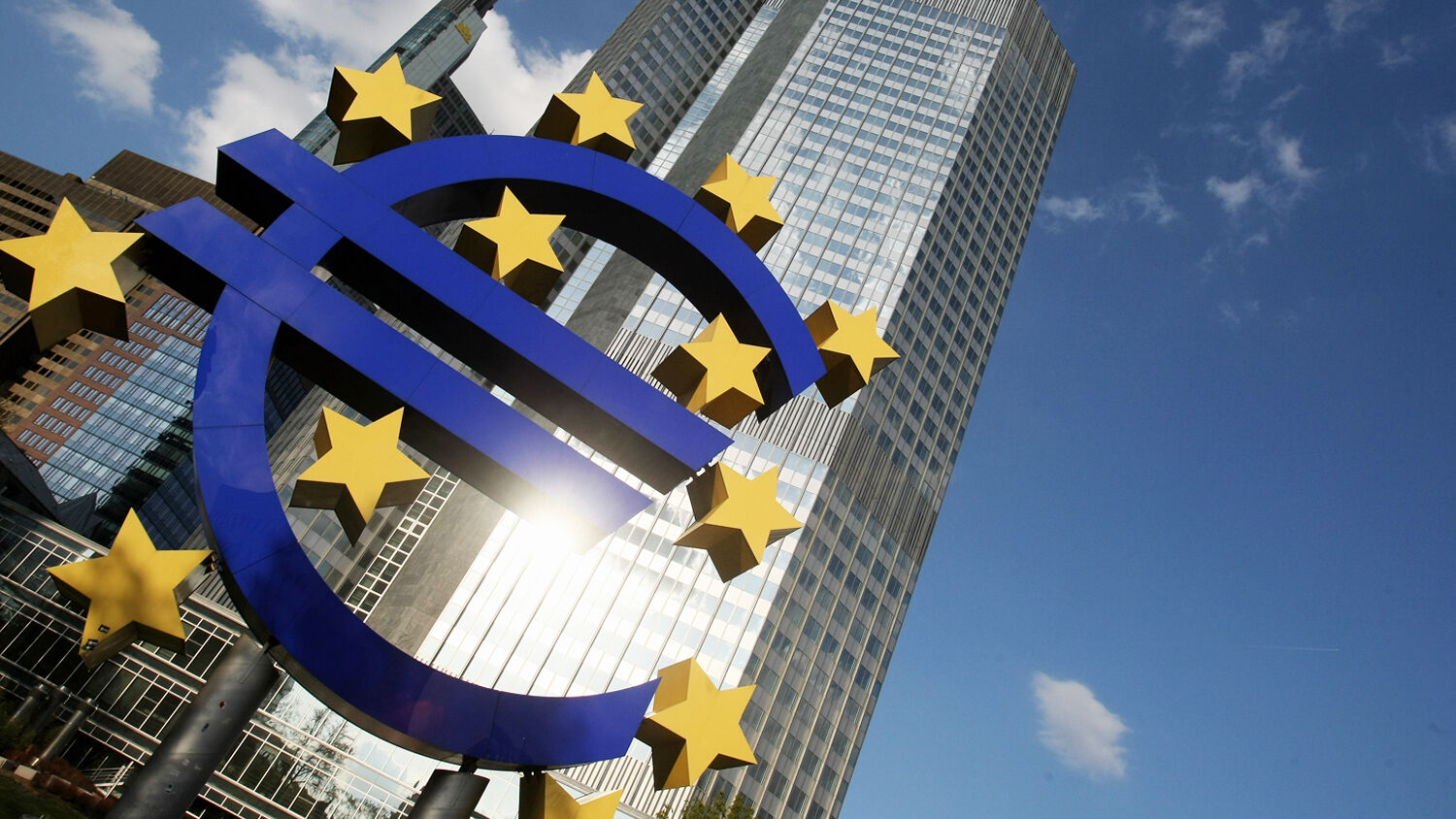
Will Germany Use the Euro to Side With China Against the U.S.?
As global conflicts and tensions rise, the European Union fears losing its economic standing. While the EU itself has passed legislation to prevent that, the German Council on Foreign Relations (dgap) think tank believes Germany needs to go further and complete the monetary union and strengthen the euro. Its article “Promoting the Euro—Countering Secondary Sanctions,” published on February 8, shows how Germany could suddenly turn against the United States and side with China.
dgap’s argument is simple: The EU, an exporting champion, is at a great disadvantage in any major trade war. In a trade war between the U.S. and China, for example, the EU is doomed to take peripheral damage. Karl-Theodor zu Guttenberg, who formerly served as Germany’s economics minister and defense minister, explained the predicament this way: “[W]hat happens if Germany, under pressure from the United States, excludes the Chinese company Huawei from building the new 5G data network? China could defend itself against German products with tariffs, and the companies would be affected. And if Germany allows Huawei, against the will of the United States, then the United States could defend itself by putting tariffs on German products—a dilemma.”
Many U.S. sanctions on China are ineffective if the EU ignores them and increases trade with its Chinese partners. dgap noted that in an all-out trade war, Germany could be forced to side with the U.S. through secondary sanctions. If EU nations don’t comply, they could be excluded from the U.S. financial system, which is far worse than losing access to China.
For this and other reasons, the German-led European Union seeks to strengthen its own economic standing and is exploring ways to retaliate. (Read “The EU’s New Weapon in a Coming Trade War” for more information.) But as dgap pointed out, current EU retaliation measures are ineffective. “The dominance of the dollar as an international currency is a source of U.S. power and European vulnerability,” dgap noted. “Promoting the euro as an international currency is the only realistic longer-term option to reduce, if not necessarily to completely neutralize, Europe’s vulnerability vis-à-vis dollar sanctions.”
While the “euro area meets most of the conditions necessary for the euro to become the dominant international currency, or at the very least an international reserve currency coequal to the dollar,” it does still face some challenges that can be overcome, according to dgap’s analysis.
There are certainly reasons Germany hasn’t promoted the euro as a reserve currency, but the current global situation is giving incentive and opportunity for this to change. For example, Russia and China—two nations who want to avoid U.S. sanctions—recently agreed on a new pipeline deal to be settled in euros. With the support of the Asian bloc, the euro could quickly rise in prominence. Just the fact that dgap is discussing this topic shows how fractured U.S.-German relations are.
This trend toward U.S. independence is right in line with Bible prophecy. As Herbert W. Armstrong explained in The United States and Britain in Prophecy, most Bible prophecies are for our day and the key to understanding them is knowing the identity of modern-day Israel—primarily the United States and Britain. Because these nations are rebelling against God, He is turning their blessings into curses.
A prophecy in Isaiah 23 warns of a trade alliance that excludes Israel. In a U.S. dollar-dominated global trade system, it appears impossible for such a prophecy to be fulfilled. But as Trumpet editor in chief Gerald Flurry explains in Isaiah’s End-Time Vision, this prophecy shows how China and the European market will work together to bring down the U.S. Current events show these nations are indeed preparing to do just that.
This is another sign that the remarkable prophecies of the Bible are about to be fulfilled in a dramatic way. Notice what Mr. Flurry writes in Isaiah’s End-Time Vision (first published in 1994):
With a German-led Europe (the king of the north) possessing great maritime power, North America will be surrounded on the east by Europe and the south by Latin America. The Bible contains many prophecies of that European power attacking America—and many other prophecies of America being besieged.
That is where China and the giants of Asia enter the picture. When the Holy Roman Empire attacks North America, there will be no help or sympathy from Asia. In fact, considering that China has come to possess most of the world’s strategic sea gates (which, ironically, at one time were held by Britain and America), we believe there may be a brief alliance between the German-led Holy Roman Empire and certain Asian powers (Russia, China, Japan—the kings of the east). Should Europe, the resurrected Holy Roman Empire, find a way to take advantage—even for a moment—of key resources and strategic holdings of China, Russia and Japan, it would have more than enough power to besiege the Anglo-Saxon nations and enslave them.
This is why Isaiah’s prophecy of an end-time “mart of nations” that includes both European and Asian powers is so intriguing. And why the trend of collusion between these two great economic blocs is worth watching.
Mr. Armstrong wrote in the Plain Truth in 1934: “Scripture prophesies two great military powers to arise in the last days—one the revival of the Roman Empire by a federation of 10 nations in the territory of the ancient Roman Empire; the other … Russia, with her allies… possibly China or Japan.”
Revelation 17 and Daniel 2 indicate that the EU will be pared down to 10 kings. This could be done in an effort to form a stronger, more united empire with a powerful currency. We are now seeing not only how Europe and Asia could rise to power but also how they could suddenly unite against the U.S. All these events demand urgent understanding. I encourage you to order a free copy of Mr. Flurry’s booklet Isaiah’s End-Time Vision.
